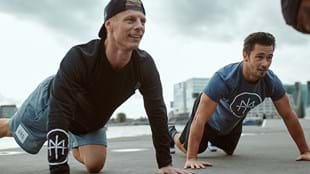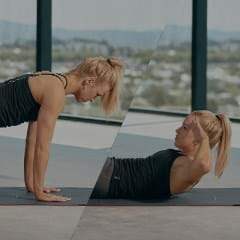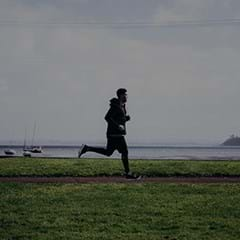In 2007 a remarkable study was published that demonstrated a seemingly clear link between mental expectations and physical outcomes in exercisers.
The researchers took 84 female hotel attendants, most of whom believed they didn’t get enough exercise, and gave half the group a 15-minute presentation explaining how, simply by doing their jobs (cleaning hotel rooms), they were meeting the Surgeon General’s recommendations for an active lifestyle. The other half weren’t told anything.
After four weeks both groups were assessed. While their behavior hadn’t changed, the group that had received the presentation had lost weight, lost body fat, and had lower systolic blood pressure. They also reported greater job satisfaction. There was no change in the control group.
While the physiological effects weren’t huge, they were significant enough to show that – when it comes to exercise – mindset matters.
Was this a case of an exercise placebo effect?
“Placebo” is typically used to describe the health benefits of a drug or remedy that can be attributed to expectation of its efficacy rather than its actual properties.
There is also a “nocebo” effect, which refers to the negative power of the mind, to harm rather than heal. We can think ourselves well and we can think ourselves sick. To a certain extent, it seems, we can also think ourselves fit.
The lead author of the hotel attendant study, Alia Crum, is now an assistant professor of psychology at Stanford University. In an excellent TED talk on the subject she argues for a better understanding of how mindset can play “a dramatic role in determining health and wellbeing”.
More recently, she co-authored a study showing the inverse; that thinking you’re less active than you are can actually be dangerous to your wellbeing.
The researchers analyzed surveys from more than 60,000 adults from three national data sets, which documented levels of physical activity, health and other measures. They then looked at death records 21 years after the first survey was completed. Using statistical modeling (accounting for age, body type, illness etc.) they found those who believed they were less active than their peers were 71 percent more likely to die than those who believed they were more active.
As the study emphasized, simply thinking you’re unfit won’t kill you – and thinking you are fit isn’t an excuse to avoid exercise. What it does suggest is that people should be aware of their own physical activity levels, and perhaps not compare themselves to others.
If you feel good, like the hotel room attendants, you are more likely to build on your existing activity level. Feeling bad about how little exercise you think you do can put you off doing any – and build on feelings of fear, anxiety or depression.
Similar findings emerged from a study published this year into how people’s expectations or beliefs about their physical fitness affected their perception of how strenuous a physical activity was.
The researchers, led by Hendrik Mothes of the Department of Sport Science at the University of Freiburg in Germany, recruited 78 women between 18 and 32 years of age, with similar levels of fitness, and asked each of them: “How athletic do you think you are?” Participants then rode a stationary bicycle for 30 minutes at moderate intensity, and were asked every five minutes how arduous they found the activity.
Those who believed they were more athletic described the exercise as much less arduous than those who were just as fit but who didn’t rate themselves as such – the latter group found the exercise far more difficult than people with their level of fitness should have.
Furthermore, the researchers decided to look at the possible placebo effect of wearing a compression shirt. They found it didn’t make a difference for those who regarded themselves as sporty; for those who didn’t, it made the exercise seem less arduous. Said the authors: “The results imply that people with negative attitudes about their physical abilities in particular may ‘get what they pay for’ ... in the manner of a self-fulfilling prophecy.”
In other words, if the shirt fits – and makes you feel fit – then wear it!
TIPS TO FEELING – AND BEING – FIT
- Embrace any opportunity to be physically active.
- Take into account all the physical activity you do that’s not exercise specific. The energy you expend during everyday activities is called non-exercise activity thermogenesis (NEAT) and it comes from simple things such as walking, cleaning, gardening, shopping and even fidgeting.
- Concentrate on your own activity and fitness level, don’t compare what you do to others.
- Avoid dwelling on missed exercise opportunities, instead think about the physical activity you have done.
- Be positive – any activity is good activity.
Follow the freshest thinking @fitplanetmag.







